Ирония ударов по российским НПЗ и СПГ в том, что Иран разрабатывал Shahed именно как оружие против саудовских нефтяных мощностей. Небольшой заряд, наводимый по инерционной системе и GPS, прошивает колонну крекинга, танкер под загрузкой или установку по сжижению газового конденсата.
Ювелирная точность не так важна, ведь башня перегонки — это 50-60-метровое сооружение с реактором, точками аэрации и насосами. Куда-нибудь попадет — обязательно что-то выведет из строя
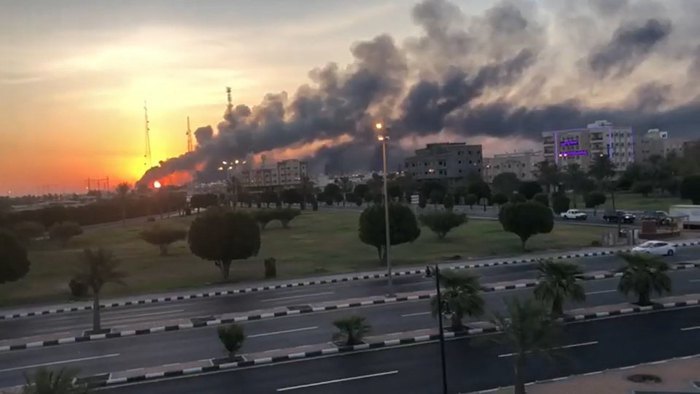
На выходе — пожары, падение переработки и перевалки, миллиардные убытки. Рой таких аппаратов на предельно малой высоте трудно засечь со стационарной РЛС, а из-за дозвуковой скорости трудно перехватить сверхзвуковым истребителем.
Его небольшие размеры и композитный материал делают барражирующий боеприпас не самой простой целью даже для летающего радара, а большой запас хода позволяет строить неожиданные маршруты.
Например, заводы компании Saudi Aramco в городах Абкайк и Хурайс в 2019 году Иран атаковал, когда большинство зон ПВО саудитов работали на юге по Йемену.
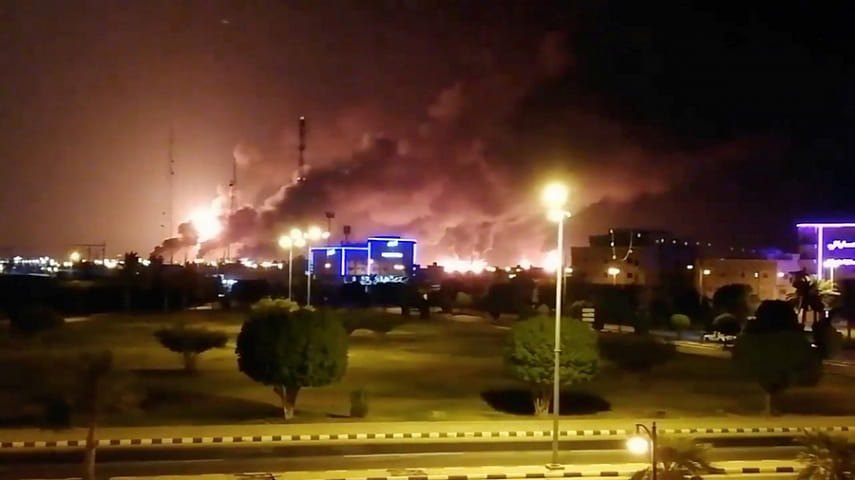
Такой себе кинжал в рукаве халата для войны на Ближнем Востоке против конкретной страны, которая строила свое ПВО на дорогих Patriot. Так или иначе будут убытки. Если не попасть в башню перегонки, то ПВО расстреляет 40 млн долларов по аппаратам, которые стоят значительно дешевле.
Поскольку Россия — такая большая держава, что смогла изготовить дальнобойные барражирующие боеприпасы, только когда локализовала иранские разработки, то все плюсы и минусы копируют на заводе в Елабуге.
И то, что Москва приспособила его для атак на трансформаторы или перевалку зерна, не делает наши объекты идеальной целью для Shahed — Украина не государство переработки углеводородов, для которого прилеты 50-килограммовых боеприпасов означают остановку техпроцессов важной отрасли, долгое тушение пожаров и уплату пени за сорванные контракты.
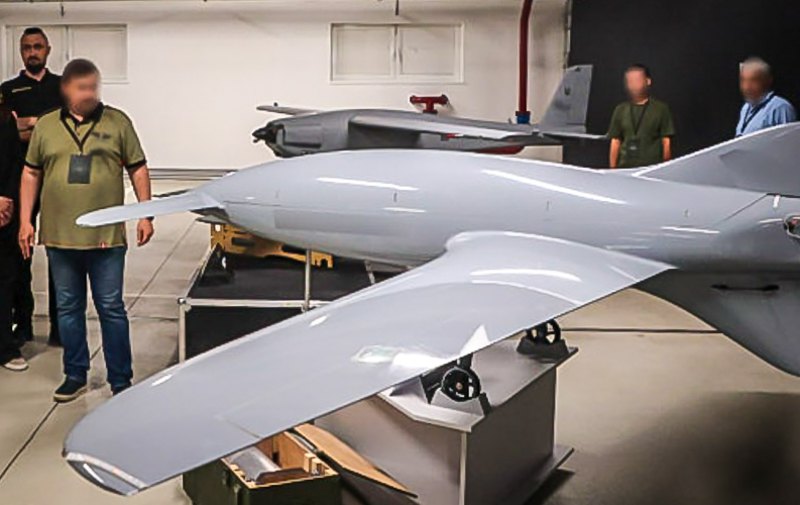
А вот РФ именно такая. Поэтому «Бобры» допекают им больше, чем Shahed нам. Проверить это очень просто. Объем зернового экспорта через украинский коридор на юге достиг и превысил показатели того периода, когда в нем была РФ.
Российский нефтяной экспорт упал на треть. Конечно, прежде всего из-за санкций и ценового потолка, но и также из-за поражения.
Первая ласточка была еще во время поражения газового терминала в поселке Волна возле порта Тамань 3 мая 2023 года. Тогда пожар длился сутки, а уже 5 мая прилетело по Ильскому НПЗ. Перевалку СПГ через Тамань тогда остановили, решили, что риски выше, чем возможные убытки.
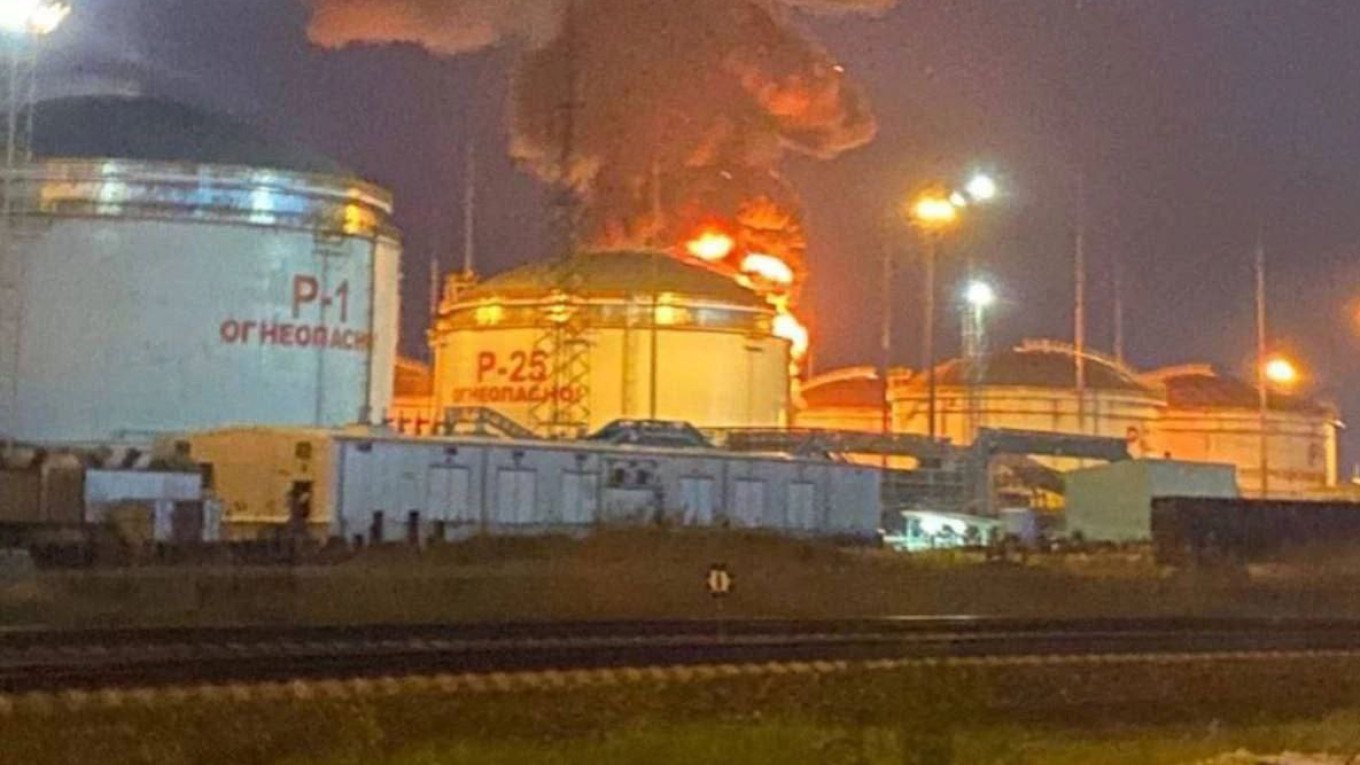
Кроме того, ПВО не хватало, нужно было защищать Москву и резиденции Путина. Теперь удары по НПЗ в Туапсе и терминалу компании «Новатэк» в Усть-Луге — пожары на севере продолжались двое суток.
На юге в Туапсе горела вакуумная установка переработки нефти. Порт Усть-Луга возобновил перевалку, но сам терминал СПГ стоит, и это вполне объяснимо. Сами россияне оценивают сроки ремонта в два месяца.
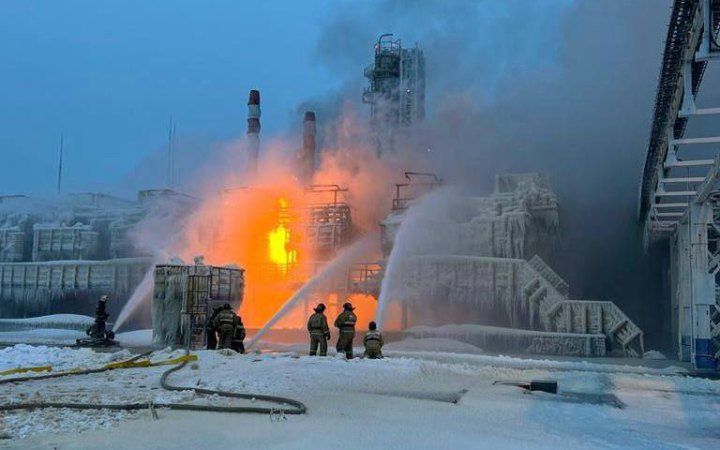
Что общего между атаками по ВДК «Новочеркасск» в Феодосии, пожарами на нефтехранилище в Клинцах возле железнодорожного вокзала, пожарами на терминале компании «Новатэк» в Усть-Луге и НПЗ в Туапсе? Резко возросли оперативные возможности Сил обороны.
Корабль обнаружили за несколько сотен километров от линии соприкосновения, его идентифицировали, отсеяли среди тех, кто стоял на ремонте или пустой в Севастополе. По нему ударили и уничтожили его вместе с экипажем, когда он находился в чужом порту на разгрузке: в результате — детонация и куски обшивки по всей Феодосии. Идеальная операция в плане тайминга, взаимодействия, прорыва ПВО и выбора цели.
В Клинцах поразили самые большие баки нефтехранилища, когда они были заполнены, что повлекло серьезный пожар, пришлось вызывать пожарный поезд, стягивать дополнительные бригады. То есть мы знали, какие именно баки полные, а какие нет. Это пограничная зона, где развернули тактическую ПВО, которая должна была отработать, но тоже нет.
Усть-Луга и «Новатэк» — это 800 км от Украины, движение дронов сквозь несколько объектов ПВО и ПРО, рядом — страна НАТО Финляндия и аэродромы стран Балтии, маршруты составлялись с учетом всех этих факторов. Поразили цистерны и насосную станцию (насосные станции на НПЗ — это искусственное изделие) — перевалка 7 млн газового конденсата в год выпала в простой.
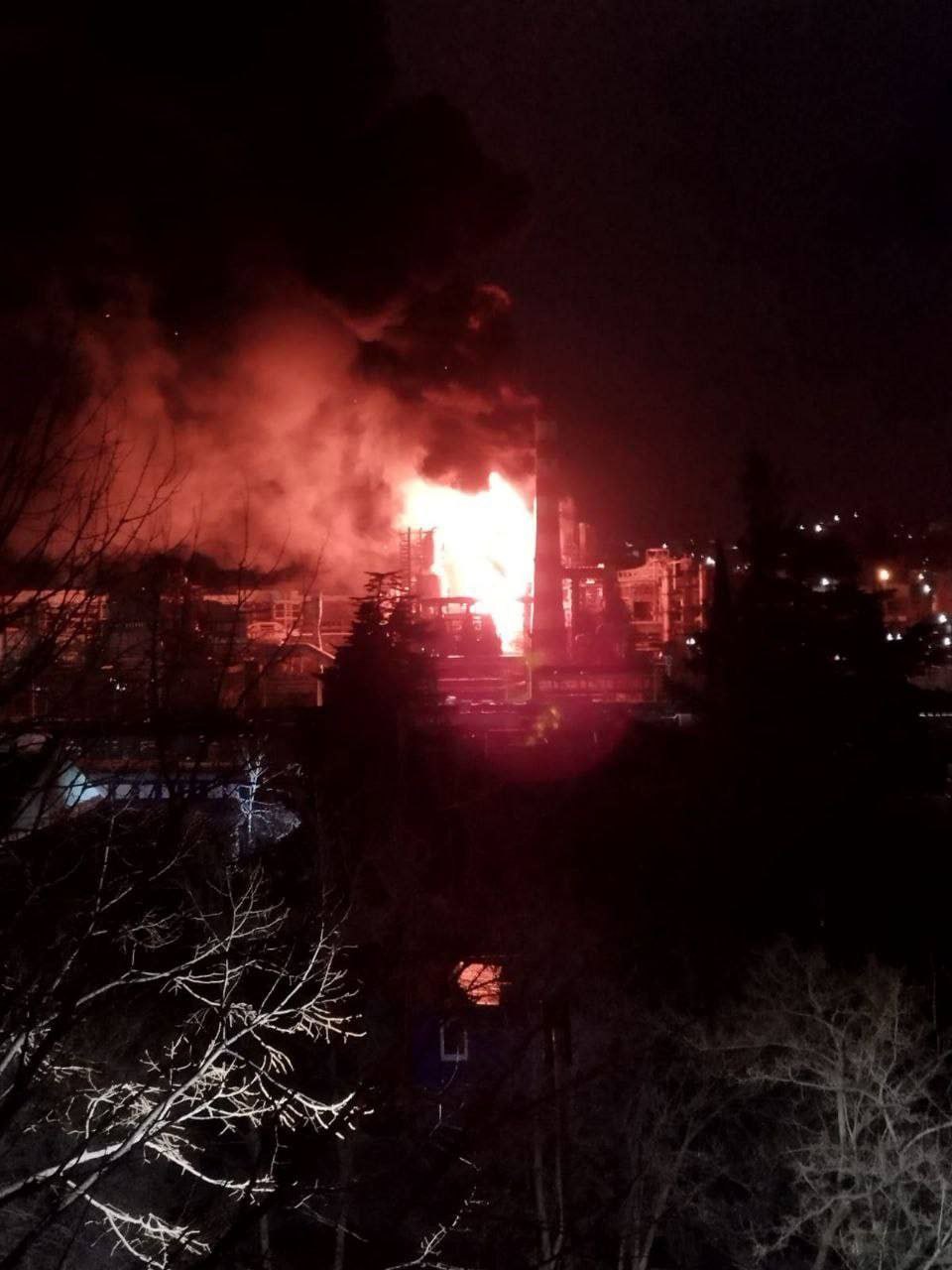
Теперь вот Туапсе. Туапсинский нефтеперерабатывающий завод — единственный на все побережье Черного моря, 90% его продукции (10-12 млн тонн в год) идет на экспорт, остальное обеспечивает южные территории РФ моторным топливом. Сильный пожар, горит вакуумная установка, естественно, это тоже месяцы ремонта.
Разведка, прокладывание маршрутов вне зон ПВО, точность поражения, общий замысел на большом ТВД — наши операции выходят за пределы уколов и превратились в стратегическую кампанию. А главное — концепция недорогого поршневого БпЛА со скромной боевой частью начинает работать против Москвы.
Причем без копипаста Ирана, как у россиян — это хорошая работа, о которой нужно говорить.
«Война за нефть»? Бесспорно. У россиян и так обвал экспорта на 170 миллиардов долларов в год, это 30% к 2022 году. Удары по производствам СПГ и перевалки могут стать серьезной проблемой для путинского режима. Перевалка сырой нефти после пожара в Усть-Луге упала в РФ до минимума за два месяца.
Хотя, конечно, не только нефть и газ.
Прилет по заводу «Щегловский вал», который производит «Панцирь», 21 января в Туле, по пороховому заводу в Тамбовской области 19 января, регулярные запуски дронов по Крыму говорят нам, что Силы обороны растягивают и так немногочисленную на такие просторы ПВО еще больше.
Что позволяет нам массировать силы и средства в точках интереса.
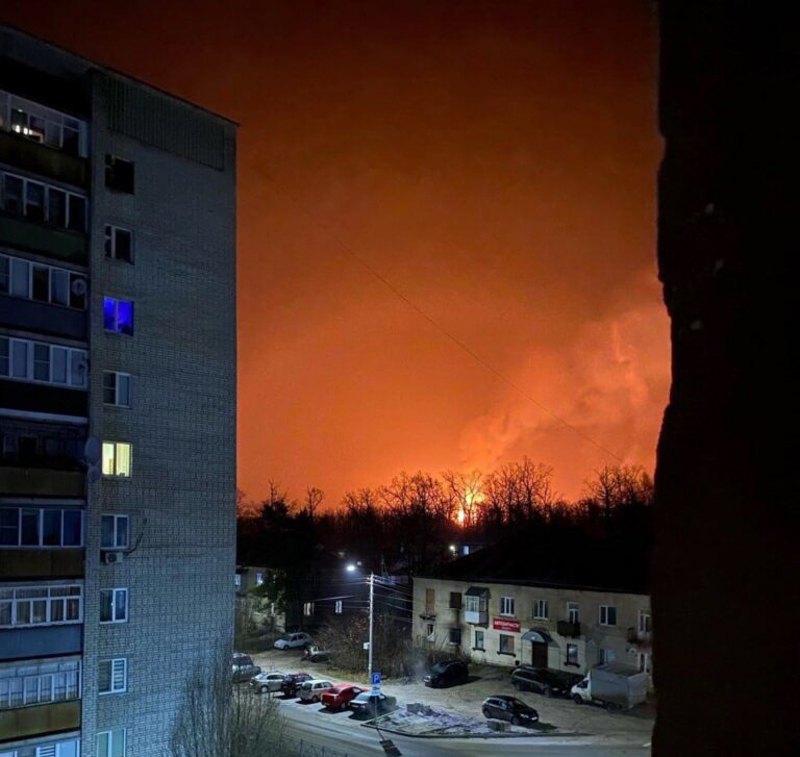
И самое главное. Сама постановка вопроса, что началась стратегическая ответная кампания с участием украинских беспилотников, показывает определенную слабость Москвы. Авиация любой нормальной страны, захватив инициативу в воздухе и подавив ПВО, никогда не позволила бы противнику нарастить удары дронами.
Небольшим цехам дронов, в том числе надводных, досталось бы высокоточное оружие, крупным заводам — тонны чугуна, операторы стали бы целями для ударных вертолетов, ударных БПЛА MALE-класса и бомб-планеров с лазерным наведением.
Не было бы никаких дуэлей на FPV, таранов и пусков нескольких десятков дальних барражирующих боеприпасов каждую ночь. Так что за прилет по Харькову, Одессе и столице ответ отгружают каждую ночь.
Украинские оперативные возможности растут.
Российские граждане гибнут, получают ранения и беднеют из-за амбиций кучки стариков в Кремле.


